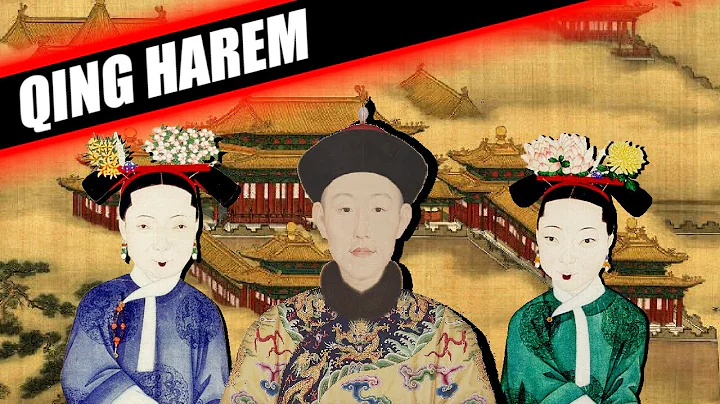In the summer of 658 BC, the expanding Jin Kingdom was already fully fledged.
It became the primary goal of the Jin State to open up the road for the Jin State to go south and annex the old guard of the Zhou royal family, Guo State .
The Jin State borrowed a road from the neighboring Yu State and took control of the strategically important place between Guo and Yu, Xiayang City (Pinglu, Shanxi).
The Battle of Xiayang further opened up the surprising weaknesses of Guo State's strategic deployment.
In the eyes of Duke Xian of Jin , Guo State is already a delicacy in the mouth, and all he needs to do is swallow. What he cares about is how to give the final blow to Guo Kingdom.
The former royal nobleman has become a lamb in the mouth of a tiger.
In the history book "Spring and Autumn", this period of history is described like this: "The Yu divisions and the Jin divisions destroyed Xiayang."
On October 30, 2000, the ruins of the Lijiayao in Sanmenxia, the capital of the Guo Kingdom, first appeared in in people's sight.
This archaeological discovery has attracted widespread attention. The Guo State city walls and palace ruins discovered in Lijiayao have become a major discovery in the archaeological field of our country. Experts agree that today’s Lijiayao in Sanmenxia City, Henan Province is The former capital of Guo State was Shangyang City.
In 658 BC, the Jin army first occupied Xiayang, an important city in the northern part of the Guo Kingdom.
"The Guo State straddled both sides of the Yellow River at that time, and the area was relatively large. The north was called Xiayang City, the south was Sanmenxia and the area around it was Shangyang City. Xiayang City is now in Pinglu County, Shanxi. There is a The important ferry is called Maojin Ferry . Although both Shangyang and Xiayang belong to the Guo Kingdom, there is a Yellow River between them. The only ferry crossing, Maojin Ferry has towering peaks on both sides, making it easy to defend but difficult to attack.
The Jin army encountered big trouble here. The Jin State borrowed a road from the State of Yu and attacked the State of Guo in a roundabout way. Although they captured Xiayang on the north bank of the Yellow River, they occupied half of the State of Guo. But how could the Guo State, which had been at war all year round, lose its combat effectiveness so easily?
On the way to Shangyang, the capital of Guo State, the Jin army was blocked by Guo Army guard Zhou Zhiqiao at Maojin Ferry. It was difficult to land and they had to retreat to Xiayang to defend.
Victory was in sight, but all activities ceased and the Jin army could not continue to advance. Duke Xian of Jin saw a problem. As long as Guo's guard Zhou Zhiqiao was there, it would not be easy to deal with Guo. What can
do to go further?
Three months later, a group of people came to the Jin Kingdom. The leader of this group was none other than the guard of the Guo Kingdom, Zhou Zhiqiao. As the two armies confront each other, what is the unusual purpose of the arrival of this enemy defender?
Duke Xiang of Jin had to carefully examine the general in front of him.

▼
In the Guo army camp, Guo Gongchou , who had just suffered a defeat in Xiayang, obviously made serious mistakes in his judgment of the situation.
In his heart, the loss of Xiayang City was just a temporary tactical defeat for Guo State. If he was well prepared, it would still be easy to defeat the lowly Jin State.
Guo Gongchou did not use the remaining troops to regain the old capital of Xiayang, but once again made the decision to attack the Dog Rong.
In 771 BC, Haojing (today's Xi'an, Shaanxi), the capital of Zhou Dynasty , was captured by Quanrong. After this terrible disaster, the emperor of the Zhou Dynasty moved his capital to Luoyi (now Luoyang, Henan) and began the rule of the Eastern Zhou Dynasty.
After the Zhou royal family moved eastward, the gate to the west was opened, and the dogs and soldiers marched straight in. Hangu Pass was the last barrier and the military fortress of the Guo Kingdom. Hangu Pass, located to the west of Sanmenxia, relied on its steep terrain thousands of years ago to become an important pass blocking Western ethnic minorities from moving south.
With Guo Guo sitting in Hangu Pass, Quanrong could only covet the rich Eastern Zhou land.Now, the armies of Jin and Guo were at war, and Quan Rong immediately took the opportunity to come to the border of Guo, hoping to seize the land of the Zhou Dynasty again.
When Guo Gongchou heard that Quan Rong had invaded the west, he ignored the confrontation with the Jin army. He immediately concentrated heavy troops and took the initiative to fight against the Quanrong who were approaching the western border of Guo State.
Occupying the advantage of Hangu Pass, Guo Gong once again successfully drove away the Western dog army invasion for the Emperor of Zhou. This military victory seemed to give Guo Gong an incomparable sense of superiority.
However, Guo Gongchou's victory against the Quanrong on the battlefield made the Guo army's defender Zhou Zhiqiao unhappy and worried. The Guo Kingdom had just lost the Xiayang Fortress and the Jin army was crushed. At this time, Guo Gongchou chose to concentrate his forces to attack Quanrong. This was obviously a lifeless move.
"The king of Jin had this concept of expansion in his mind, while the king of Guo was more conservative in his thinking. He had been maintaining the etiquette and patriarchal laws of the Zhou royal family. He had no such ambitions."
The decline of the Zhou royal family made Zhou Zhiqiao seemed to have seen the future of Guo State. He believed that the country would be destroyed within five years. Therefore, two paths were placed in front of Zhou Zhiqiao: coexist and die with the Guo State, or break away from the Guo State to protect himself.
After weighing the situation, Zhou Zhiqiao chose the latter, and the direction of his defection was easily determined, that is, the Kingdom of Jin.
One goes with the other, and Zhou Zhiqiao left with his entire family, which greatly weakened the strength of Guo State. However, it was the arrival of this person that put the process of conquering Guo that had been put aside by Jin Xiangong once again on Jin's agenda.
Guo Gongchou is still deep in the battle with Quanrong. He didn't know that at this time, Guo Guo's backyard was already on fire. However, Jin Xiangong stared at his old opponent tightly like a vicious wolf and never relaxed for a moment.
Duke Xian of Jin planned to seize the opportunity and once again sent envoys to persuade Yu State to take advantage of the passage. As long as Yu State nodded, the Jin army could take action again.
In 655 BC, an important diplomatic meeting was taking place in the main hall of the State of Yu. This was the third year after the Jin State captured the capital of the Guo State, and the Jin State's envoy Xun Xi came to borrow a passage again.
At this time, the Jin State already controlled half of the Guo State. The first batch of troops that entered Guo to fight three years ago did not return to the country, but stayed in Xiayang City to confront the Guo army.
This time, the purpose of Jin Xiangong sending Xun Xi to borrow the road was very clear, that is, to directly annex Guo State.
Jin's ambitions were clearly revealed, and the official of Yu State Gong Zhiqi had to come forward to admonish Duke Yu. This time, he firmly opposed Yu Gong's second loan of the road to Jin.

Guo, Yu’s watch. If Guo dies, Yu will follow. The Jin Dynasty can't start, and the Kou can't play with it. What is one thing, can it be more? As the proverb says, "the auxiliary chariots depend on each other, and the lips are dead and the teeth are cold", they are called Yu and Guo!
The so-called lips are dead and teeth are cold, which refers to the relationship between Guo State and Yu State. If the Guo State is destroyed, the Yu State will definitely not be able to escape. The ambitions of the Jin State should not be encouraged. If you borrow a road once, how can you borrow it again?
However, the loyal Gong Zhiqi’s earnest advice fell on deaf ears. Yu Gong believed that both Jin and Yu were countries with the surname Ji under the rule of the Zhou Dynasty. With this kind of kinship, Jin would not do anything too outrageous. He just wanted to use a way to teach the arrogant Guo a lesson again. That’s all.
However, Duke Yu did not expect that although Duke Xiang of Jin was still a descendant of the Zhou royal family in terms of blood, after the brutal civil war in which Xiao Zong replaced Dazong, the Jin State had already evolved into a country that could tear apart the territory at any cost in order to expand its territory. Go to the country of hegemony with all its pretenses.
During the Warring States , people used to call the Qin Kingdom the country of tigers and wolves, but in fact, the first country to be called the country of tigers and wolves was the Jin Kingdom. In order to survive, Di Rong wanted to destroy it and block its own expansion border. All countries in the world must be destroyed. This became the basic idea of the development of Jin during the reign of Duke Xian of Jin.
At this time, the era when Guo and Jin were equally powerful is gone forever.When the etiquette established by Emperor Zhou collapsed, the fighting between countries was no longer based on blood. This was an era where marginal forces were favored. For example, the Qi Kingdom on the east coast, the Chu Kingdom in the south, the Qin Kingdom in the west, and the Jin Kingdom in the northwest gradually grew stronger and developed into the four major vassal states by eliminating small countries and ethnic minorities on the border.
The vassal states in the Central Plains have tasted the collapse of rituals and music. The Jin State has long been no longer satisfied with being in the northwest of the Zhou Dynasty. It has increased its power by annexing small countries. This is a necessary step for the Jin State to move toward hegemony in the Central Plains. Regarding this attempt, Gong Zhiqi, the official of the Yu State, was very clear - after the Jin State destroyed the Guo State, the Yu State was destined to not have a good end.
Although Duke Yu was at a loss for words, he still insisted that the Jin State would never do anything detrimental to the Yu State.
"Although there is some truth in the coldness of lips and teeth, in this case, it is a bit alarmist..."

The etiquette system is about to be broken by the troubled times, and the weak and decadent Emperor Zhou is no longer able to provide protection to these noble feudal states. . The princes are fighting for hegemony , the weak and the strong are eating each other, this is the general trend of the world. Small countries like Yu and Guo, which live in the cracks, will not escape the fate of being defeated by each other if they do not rely on each other in the turbulent years.
Gong Zhiqi shuddered when he thought of the impending disaster that Guo and Yu would encounter. Protect yourself wisely and go far away. Perhaps this is the best way out for Gong Zhiqi, who has lost hope at this time.
▼
Duke Yu’s mistake made Xun Xi’s strategy succeed again, and the Jin army was able to bypass Guo’s defense line for the second time. This military operation was personally commanded by Duke Xiang of Jin. He quickly assembled the most elite Jin army, and the battle to destroy Guo began.
In 655 BC, after the Jin army assembled in the capital Jiangcheng (today's Xiangfen County, Shanxi Province), they crossed Zhongtiao Mountain, arrived at the capital of the state of Yu, and continued southward, and finally merged with the Jin army stationed in Xiayang. Army.
Shangyang City, the capital of Guo State, and Xiayang City, which was already full of Jin troops, faced each other across the rushing Yellow River.
Jiawu, the eighth day of the lunar calendar in the 22nd year of Duke Xiang of Jin, was August 5, 655 BC. The Jin army began to cross the Yellow River and launched an encirclement against Shangyang City.
At this time, the main force of the Guo army was still in the west to defend against the sneak attacks of the Dog Rong. The troops in Shangyang City were simply unable to withstand the Jin army, and the initiative of the war fell completely into the hands of Duke Xiang of Jin.
In November of this year, the Yellow River began to enter the dry season, and the three-month siege was finally coming to an end. The Jin army launched a full-scale siege. After a bloody battle, the disparity in military power caused Guo Gongchou to completely abandon the defense of Shangyang City. He fought his way out of the siege of the Jin army and fled towards the capital Luoyi (Luoyang, Henan). go.

Since then, Guo Gongchou has completely disappeared from the records of historical documents, and his ending is unknown. Shangyang City fell, and Guo State finally lost its last bit of resistance, and Jin won a complete victory in the battle against Guo.
At this time, the Yu State, which had lost its alliance and was unsuspecting, was about to become the next lamb to be slaughtered by Duke Xiang of Jin.
The auxiliary cars are dependent on each other, and the lips are dead and the teeth are cold . When Gong Zhiqi's prophecy unfortunately came true, perhaps at this moment, Duke Yu deeply realized the truth that losing his lips would cause his teeth to freeze. The State of Yu and Duke Yu became the biggest victims of the battle between Jin and Guo.
The strategy of "killing two birds with one stone" by "false roads to conquer Guo" was also included in "Thirty-six Stratagems" by later generations, and became one of the outstanding military strategies in ancient my country.
Almost overnight, two dukes and princes were destroyed. The etiquette system of the Zhou Dynasty was slowly disappearing under the provocation of the Jin State.
The Guo Kingdom, which was founded nearly four hundred years ago, finally fell on the eve of the Spring and Autumn Period of Hegemony after experiencing many storms. Over the next two thousand years, the Guo Kingdom, together with everything in it, slipped quietly underground and became a mysterious mystery.
The jade-stem copper core iron sword known as the first sword in China, large ceremonial musical instruments, various weapons and miscellaneous chariots and horses, large chariot and horse pits... They continue to tell the world that history The Guo State in ancient China continued to play the role of a military power until its demise.
However, with the passage of time and the change of dynasties, the history and war past of Guo Kingdom were also buried in the loess and no one knew it.
has more original materials and history, so please pay attention to the official account updates.
This article has been selected as the documentary creative content of iQiyi’s exclusive column "General History of the Chinese War"
[This article is authorized to be reprinted on the WeChat public account of Zhongshuo Modern History, please do not reprint without permission]
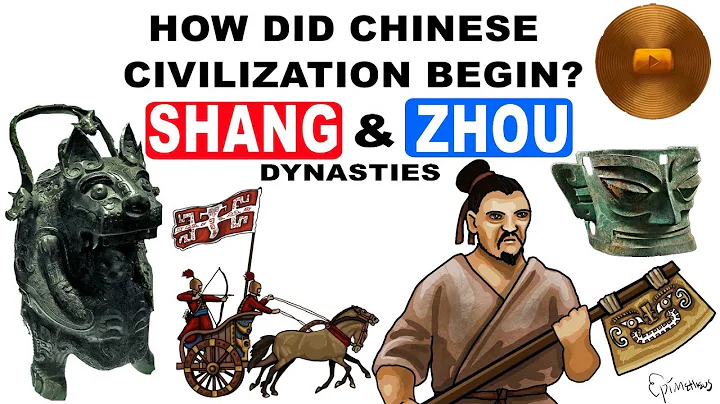





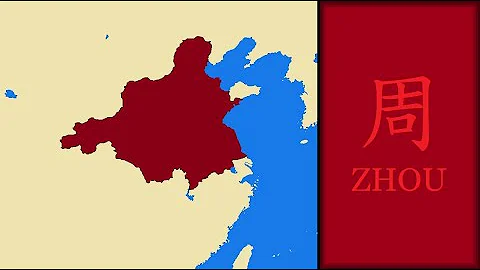

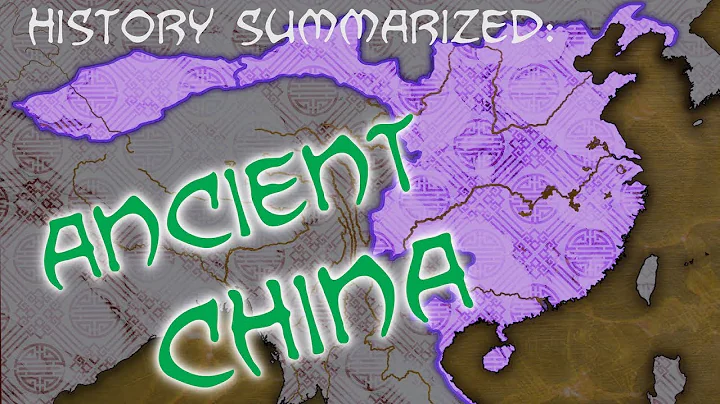
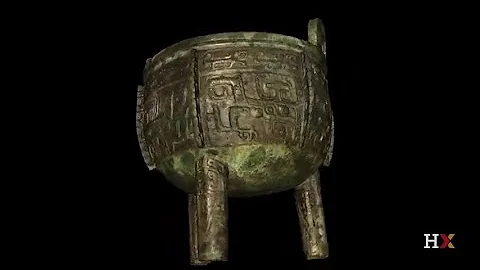








![[Eng Sub] Kangxi Dynasty EP.01 Prince Xuanye wins first place in exam but unluckily catches smallpox - DayDayNews](https://i.ytimg.com/vi/HPtwmzuhVA4/hq720.jpg?sqp=-oaymwEcCNAFEJQDSFXyq4qpAw4IARUAAIhCGAFwAcABBg==&rs=AOn4CLCR_-ZC8HmzMKyx8zk0YaDVI-OHLQ)
![[MULTI SUB]Full Movie《Yang Guifei》|fantasy|Original version without cuts|#SixStarCinema🎬 - DayDayNews](https://i.ytimg.com/vi/oQIewYmBucc/hq720.jpg?sqp=-oaymwEcCNAFEJQDSFXyq4qpAw4IARUAAIhCGAFwAcABBg==&rs=AOn4CLCK93TknJtkfiQKzpRZVWFt_7oeCA)
